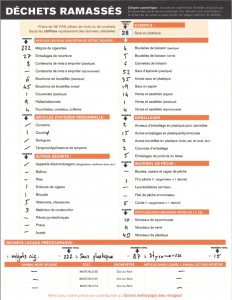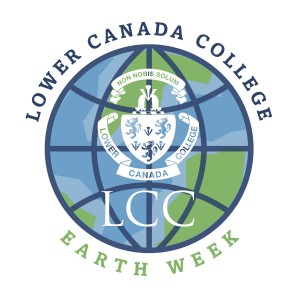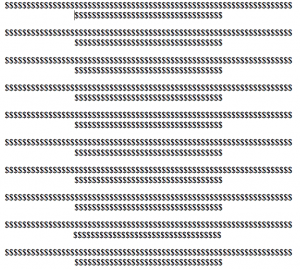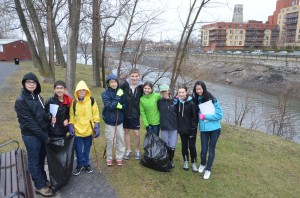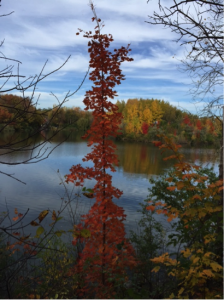 Hello Lions! Welcome to the first post of The LCC Tree, a blog that discusses one environmental topic once a month. This blog will also include really easy tips on what you can do as a person to help, and will also contain initiatives that the SS Green Team will be organizing so you know what you can do to help out at LCC. Finally, to keep things interesting, at the end of each blog, there will be a variety of media links, including informational sites, fact sheets and other web blogs, you can look into if you want to know more.
Hello Lions! Welcome to the first post of The LCC Tree, a blog that discusses one environmental topic once a month. This blog will also include really easy tips on what you can do as a person to help, and will also contain initiatives that the SS Green Team will be organizing so you know what you can do to help out at LCC. Finally, to keep things interesting, at the end of each blog, there will be a variety of media links, including informational sites, fact sheets and other web blogs, you can look into if you want to know more.
As our trees are just finishing their spectacular firework of the different tones of red, yellow and orange, what better topic is there to discuss this month other than those very things: trees.
Trees are a catalyst for life in many aspects. Obviously, their most important role is to consume carbon dioxide from the atmosphere and return the precious oxygen that all life forms on earth require, however, did you know there are over a dozen other ways that trees can contribute to our overall life quality?
Let’s start with a few other oftentimes-unseen uses. First of all, trees provide a basis for life for many animal species and foster ecosystems necessary for the survival of many individuals. In fact, coming from the World Wild Life organization, 80% of all land biodiversity exists in and depends on forests and wooded areas. This means that without trees, most of the animals and plants we have come to know and love will never be able to exist.
Not to mention, we ourselves also depend on forests in our lives. Wood is used in many of our buildings (just look at our LCC dining room!) as well as the making of many commodities. What is a pencil made of? What type of material is your desk, in school and in your home, made from? Where did we get the paper in our notebooks, and in our annual LCC Reads, The Alchemist? Furthermore, I should mention that trees contribute about $24 billion dollars to our economy in Canada, generates more than 190 000 jobs in the forest industry and is the reason why Canada is the primary newsprint producer. So you can see here how we as humans depend on this resource.
Trees also take part in improving our mood as they add color and vigour to our regular, and sometimes repetitive, lives, especially during the fall season. Every morning, when you arrive to school by bus, car, bike or other means, if you have stopped for a moment and looked at our LCC campus or the trees planted along Monkland, you will know what I mean. The vibrant and picturesque colours of those trees have a certain calming effect on the street and our campus.
Sadly, because 80% of all land biodiversity depends on wooded areas, this makes deforestation a pretty effective method of exterminating life on our planet. However, what can we as the population do?
Ways you can help
The easiest and most efficient of all methods is probably to reuse paper and recycle it properly. Reusing paper will not only save you money but lets you make the most of each tree which was put into the composition of the paper. Got a used piece of paper that’s still blank on one side? Keep it in a separate box as scrap paper, so whenever you want to write calculations for a math assignment or plan out an outline for an english essay, you can reuse the paper. Teachers also keep a special box for scrap paper as well, so if you have any paper that’s still blank on one side during class, don’t be afraid to give it to your teacher as spare paper!
If it’s not possible to do the above, you can also opt to recycle the paper. Recycling is a great alternative, albeit not as good as reusing before recycling. When recycling, however, be conscious about other things you are putting into the recycling bin. Paper can be recycled with other paper products so long as it doesn’t have any sort of paint or glue on the paper. This is because the process of recycling paper uses a lot of water, so paint or glue will affect the final outcome after recycling. Moreover, if a paper recycling bin contains something else that’s not a paper product, that entire bin cannot be recycled unless that object is removed, so if you are recycling, you must be careful with what you put into your recycling bin.
IMPORTANT!
As a reminder, LCC’s green, plastic recycling boxes only recycle clean products. This means if you plan to recycle carton, plastic, paper, juice boxes or others, be sure they don’t have anything inside or on the product. For paper, watch for paint and glue as they disrupt their recycling process. For juice boxes and other fluid containers, be sure that they don’t have any juice, milk, etc. in them before putting them in the recycling bins. This goes for the metallic recycling bins as well.
Finally, if you would like to extend your support again at LCC, you can always participate in the SS Green Team’s Treetober Campaign. Starting from October 22 until Halloween, during the advisory periods, we will be accepting donations for the organization we are supporting: One Tree Planted. If you make a donation of $15 or more, you will also be given a free Tree Hugger t-shirt!
For all of Senior School, there will also be a bake sale during the lunch period on October 22. Last but not least, there will also be t-shirt raffles happening in the house office and in and around locker rooms for a chance to win another free Tree Hugger t-shirt! One ticket costs $2 but three tickets will cost $5, and along with the purchase of each ticket, you will also obtain some candy along with it. – Andrew Zhang ’17
Media Archives
Learn more about the organization supported by Treetober! http://onetreeplanted.org/
If you would like to support One Tree Planted and its cause via online donations, you may also donate here.
Another way you can help the environment: https://www.youtube.com/watch?v=3iIkOi3srLo
Know how to properly recycle not only paper, metal and plastic, but also books, old computers, bottle caps, old furniture, and more. In short, visiting this site basically makes you a recycling master: http://www.earth911.com
If you’re interested in reading some more, here’s another blog about the environment written by Hannah Alper, a young person passionate about the environment: http://www.callmehannah.ca/
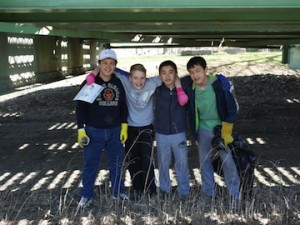 Chaque année, des milliers de Canadiens s’unissent pour lutter contre les déchets riverains, qui menacent gravement nos voies d’eau navigables, et prennent part au Grand nettoyage des rivages canadiens. Il s’agit d’une initiative de conservation de l’Aquarium de Vancouver et le WWF et du plus important programme de conservation par l’action directe au Canada.
Chaque année, des milliers de Canadiens s’unissent pour lutter contre les déchets riverains, qui menacent gravement nos voies d’eau navigables, et prennent part au Grand nettoyage des rivages canadiens. Il s’agit d’une initiative de conservation de l’Aquarium de Vancouver et le WWF et du plus important programme de conservation par l’action directe au Canada.
